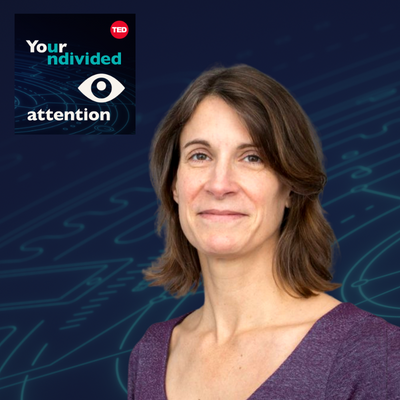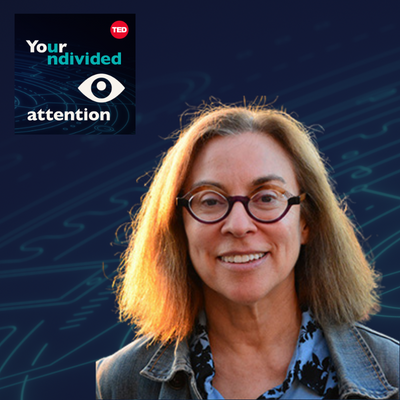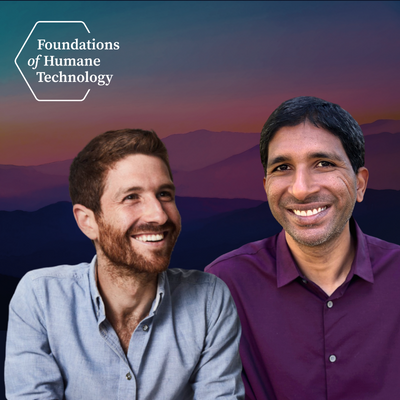Episode 57 | Oct 6, 2022
Stepping Into the Metaverse with Courtney Cogburn and Jeremy Bailenson
The next frontier of the internet is the metaverse. That's why Mark Zuckerberg changed the name of his company from Facebook to Meta, and just sold $10 billion in corporate bonds to raise money for metaverse-related projects.
How might we learn from our experience with social media, and anticipate the harms of the metaverse before they arise? What would it look like to design a humane metaverse — that respects our attention, improves our well-being, and strengthens our democracy?
This week on Your Undivided Attention, we talk with two pioneers who are thinking critically about the development of the metaverse. Professor Jeremy Bailenson is the Founding Director of Stanford’s Virtual Human Interaction Lab, where he studies how virtual experiences lead to changes in perceptions of self and others. Dr. Courtney Cogburn is an Associate Professor at Columbia's School of Social Work, where she examines associations between racism and stress-related disease. Jeremy and Courtney collaborated on 1000 Cut Journey, a virtual reality experience about systemic racism.
CORRECTIONS:
Courtney says that the average US adult consumes 9 hours of media per day, but the actual number in 2022 is closer to 13 hours.
Finally, Aza mentions the "pockets of 4.6 billion people" — implying that there are 4.6 billion smartphone users. The global number of social media users is 4.7 billion, and the number of smartphone users is actually 6.6 billion.
Major Takeaways
Virtual reality is a simulated experience that is interacted with in a seemingly real way through the use of special equipment, such as a helmet with a screen inside or gloves fitted with sensors. A metaverse is a network of virtual worlds focused on social connection. The metaverse is a hypothetical iteration of the internet as a single, immersive virtual world.
Jeremy Bailenson developed the D.I.C.E framework to specify the circumstances in which virtual reality should be used — in circumstances that would have these characteristics in the real world:
1. Dangerous
2. Impossible
3. Counterproductive
4. Expensive and rare
We can think of virtual reality and the metaverse as being on a continuum from persuasive technologies to transformative experiences.
Virtual reality experiences are often associated with the potential to cultivate empathy. But as Courtney Cogburn notes, that's a limited view of what VR is capable of. She's particularly interested in using the medium to help people understand society and analyze structural problems. As Tristan notes in the episode, imagine a VR room for Congress, whereby Congresspeople were crafting policies based on direct virtual experiences with the implications of those policies.
The key question to ask when designing a virtual experience is: what's the goal? What should the virtual experience elicit from its participants? The answer to this question should drive the design process.
In the words of technology philosopher Langdon Winner, "by far the greatest latitude of choice exists the very first time a particular instrument, system, or technique is introduced." Courtney Cogburn describes the metaverse as a blank slate. Now is the time to affect its development.
According to Courtney, the most important factor that will affect the development of the metaverse is who is at the design table. That's why she advocates for diversity at the virtual reality design table. Otherwise, as she paraphrases Princeton sociologist Ruha Benjamin saying, 'we'll be living in someone else's imagination.'
Other recommended reading
Experience on Demand: What Virtual Reality Is, How It Works, and What It Can Do
https://www.amazon.com/Experience-Demand-Virtual-Reality-Works/dp/0393253694
Jeremy Bailenson's 2018 book exploring how virtual reality can be harnessed to improve our everyday lives
Experiencing Racism in VR
https://www.ted.com/talks/courtney_cogburn_experiencing_racism_in_vr_courtney_d_cogburn_phd_tedxrva
Courtney Cogburn's 2017 TEDx talk about using virtual reality to help people experience the complexities of racism
Do Artifacts Have Politics?
https://faculty.cc.gatech.edu/~beki/cs4001/Winner.pdf
Technology philosopher Langdon Winner’s seminal 1980 article, in which he writes, "by far the greatest latitude of choice exists the very first time a particular instrument, system, or technique is introduced."



